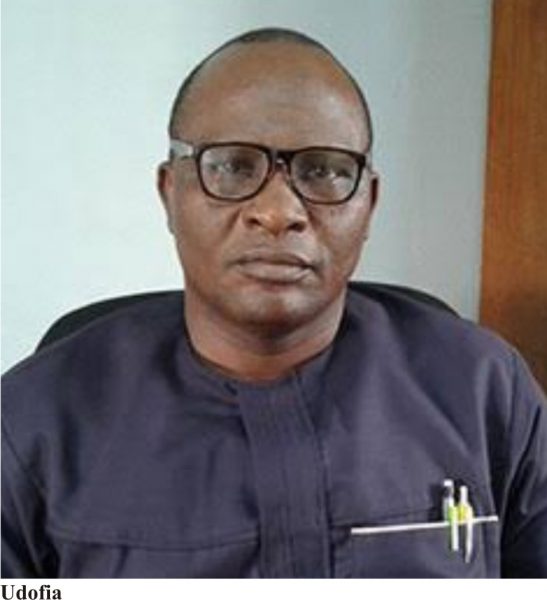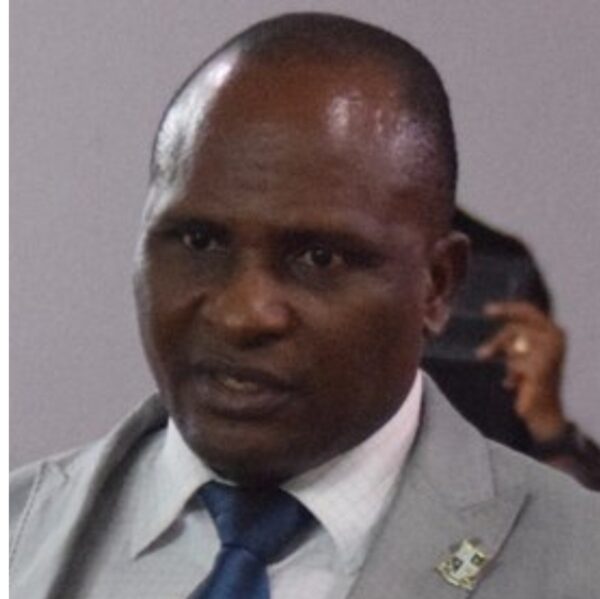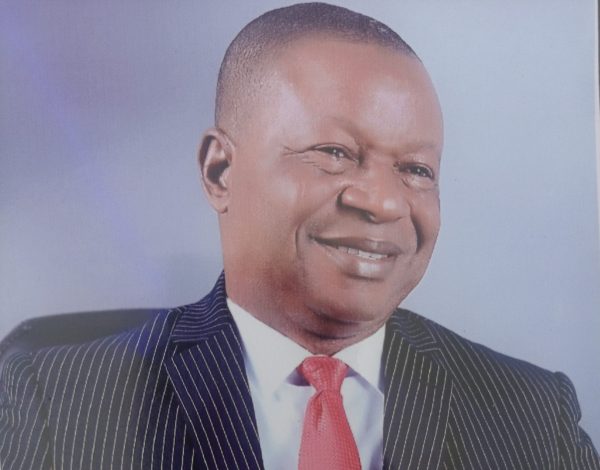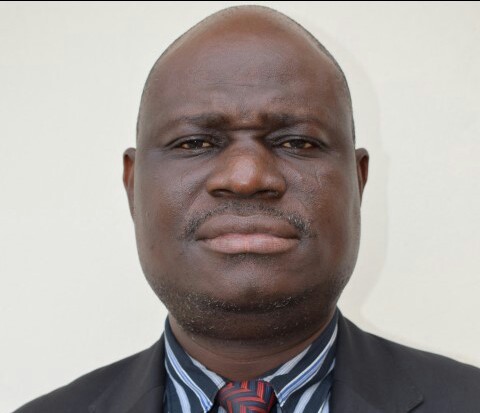Indigenous Shipping Development: Our Trade Terms Needs Review – Barr. Igbokwe
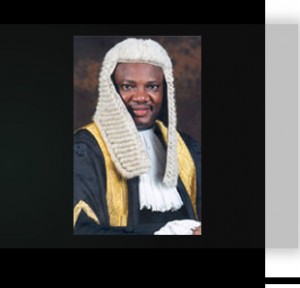
Barrister Mike Igbokwe (SAN) is the Principal Counsel, Mike Igbokwe & Co., a law firm. Igbokwe is one of the maritime lawyers that have given the industry a new direction. Heh as made his marks in legislative draftings and advocacy. He is equally a regular participant of biannual Maritime Seminar for Judges. Barr. Igbokwe spoke to MMS Plus extensively. He bears his mind on several pertinent maritime issues.
Excerpts…
Let us start with an assessment of the programme that just ended. What is your assessment of the programme?
It was excellent and thought provoking. It would go a long way to update and introduce a lot of the judges to maritime law and the happenings in the maritime industry. Maritime laws have not been taught as a topic in Nigerian Universities for a long time and the few universities who are teaching it are just scratching the surface. A lot of judges in the country don’t have any maritime background whether in terms of education or training or practice. So, there is a lacuna in their understanding of the intricacies when they handle cases because of the technicalities involved in the maritime industry.
An introduction of maritime law is an attempt to fill the gap. Although this may not sufficiently fill the void, it enables the judges to be in a better position than where they were before now. It is not just the judges of the High court that are here, there are also judges of the Court of Appeal as well as judges of the Supreme Court. We learn every day. It is an opportunity to interact, share ideas and learn new things.
This is the 14th edition of the maritime seminar for judges. How would you rate the conference in terms of meeting its objectives?
I would say that it was above average. It cannot fully meet the objectives because this training is not in a position to fully inform and train judges to become maritime experts. Judges learn on the job. They learn on the bench but this information is set to supplement what they learn from the office as a result of the submission made by lawyers and what they have read on their own.
Let us look at the maritime industry. Since Ameachi came in, he has been talking about a stunted growth as even the port concession has not done much 10 years after. What is your take on this?
I must commend the Minister for his attitude. He is a man that has seen a lot and he is determined to walk the talk. He is interested in developing this sector and he has to be encouraged. The problem is that there are other stake holders who have to endorse and support him to bring about the required changes.
There are bills that have been before the National Assembly for years yet nobody is talking about them and the Minister is here to support the drafting on these bills but he isn’t a legislator and as such he has to rely on third parties to get things done. It is a very complex situation especially when these third parties don’t get the job done. He is in a position where he cannot swiftly make the decisions he would love to make because he would need approvals. It’s not just his discretion.
There is also a need for strong political will because even the few laws we have in the sector are not been properly implemented. There are lots of challenges such as the Cabotage Vessel Financing Fund (CVFF) which isn’t working, so much capital flight and the indigenes are not playing key roles in the industry. I want to see a situation where the Minister takes the bull by the horn and not just implement. There should be plans to monitor the implementation to see if the set objectives are met. Look at the Cabotage law. It is a very good one. When we advocated for it we believed that it would generate massive employment for the sector and empower indigenous operators but it hasn’t done that. By monitoring, you can assess the impact and fill the loopholes because if the laws we have in the maritime industry are not implemented, we cannot make progress.
The terminal operators were making arbitrary charges for a long time because there was no economic regulator and the NPA was not in a position to regulate itself. If we have right laws to drive these processes and they are implemented, the benefits would be attained.
The Ports and the Harbour bill, National Transport Commission bill and the Piracy bill are examples of the essential bills that are to fill the void in the maritime industry. There is a school of thought that stresses that a law ought to have been made to give powers to NPA for the port concession and I subscribe to this view because it eradicates any ambiguity.
One of the things that the bothers some stakeholders is that when we have an agreement and one party picks up one aspect and overrides it. Terminal operators always pick the aspect of review of charges or specialized terminals. How do you see this?
It also bothers me because it shows that our policies are neither uniform nor consistent and our laws are the same. There was a time that the oil and gas zone bill was about being amended and a lot of stakeholders stated that it was going to create a monopoly that negates ports concession or privatization of the ports.
When these ports were concessioned the new owners were not told that they would not be allowed to handle certain cargo and they have the capacity to handle all cargoes. So why take these oil and gas cargoes away from them which would reduce their income and make it difficult to pay their dues to NPA. This problem requires a very serious resolution. The other thing is the inconsistency in documentation. All the concessionaries do not have similar provisions and this is not proper. It should have been consistent so everybody would have a level playing field because they all pay rentals to NPA.
Do you see lack of focused leadership as the reason for the absence of political will among heads of parastatals in the industry?
I know that the Acts establishing most of these agencies, made provisions for the qualification for who is to head the agency. Look at the case of Ferdinand Agu who was an architect and appointed Director General of the National Maritime Authority (NMA). He learnt on the job so quickly and he was able to do so much.
The Minister of Transportation, Rotimi Amaechi may not have had any experience in maritime but with the way he is going, he would learn a lot in a very short time. He has been meeting stakeholders, setting up conferences and committees because he wants to learn, to be guided and to implement. With the passion he has, he would do so much for the maritime industry. So I wouldn’t say it is as a result of lack of focus on the part of leadership. It may be difficult to ascertain as an outsider. A DG or Minister of a place may have good plans but if his boss says I don’t want to go in that direction then he has to listen to his boss.
A lot of shipowners believe that the hitch with regards to the acquisition of vessels is because there is no guarantee of cargo from the NNPC. What should the government do to ensure indigenous shipowners can lift NNPC cargo?
Don’t forget that there is a big difference between coastal shipping and deep sea shipping. The shipowners may have been complaining about not being allowed to lift crude but unless it is been transported along the coastal waters it cannot be captured under Cabotage law. I am aware that NNPC is insisting on Petroleum and Indemnity insurance club which most of the Nigerian owned vessels don’t have. NNPC has asked shipowners to come together to build their capacity so that they would be recognized but they have not done that. There is also an issue with regards to the trade terms that do not encourage Nigerians to participate in global shipping and this needs to be reviewed.
The failure of the Nigerian National Shipping Line (NNSL) has also become a discouraging factor to the Nigerian government; hence they are skeptical about developing a national carrier. A national fleet isn’t just a symbol of national pride but it ensures that in times of emergency we don’t have to depend on foreign owned ships to carry our crude. Nigerian ports are empty as the goods which are supposed to come to the country are diverted to Cotonou or Cameroon. The nation is losing money on freight yet these goods end up in Nigeria.
There are several deep seaports springing up in the South East as the Ibaka deep seaport, Calabar port, Bayelsa and Cross River states are also building state-owned deep seaports and at the ceded area of Bakassi, Cameroon is also building a deep seaport. How many cargoes do we have to maintain these ports?
There should be enough ports to give the shipper freedom to choose. So when we have more there would be competition which would lead to the reduction in charges that should bring down the cost of freight and subsequently the cost of the goods in the country. I think it would be good to have all these ports and if the draft of the ports are very deep then it is better for the nation.
There has been low import in recent times as a result of Nigeria’s harsh economic policies. Don’t you think this would negate the benefits of multiple ports? Should the government be looking at a review?
The economy would have to be booming so as to encourage imports and exports to keep the ports busy. I would advocate the review of economic policies in terms of import and exports in order to ensure the effective utilization of these ports. For a long time, it has been more expensive to use the Nigerian ports than neighboring ports. This is one the problems that the port economic regulator is there to correct.
Recently, a former Managing Director of NPA Chief Adebayo Sarumi said the Onitsha river port isn’t viable and some stakeholders saw that statement as an ethnic sentiment. What is your opinion on it?
Onitsha river port is one of the ports under the National Inland Waterways Authority (NIWA) but I know that dredging was carried out there to enable vessels use the port. I am also aware that the government was planning to concession the port but I don’t know why.
The port operator has a responsibility to promote his port. It’s just like when you have a business; if you don’t do things to encourage people to patronize it then there is a problem. We need the right experts to manage the ports profitably and create the right policies and incentives that would encourage people to use the port.
The port can be used to decongest the roads by providing a means for some of the Onitsha marketers to carry their cargo to Port Harcourt via the water ways. Water transportation is always cheaper, the onus falls on the operator to market the port but it requires a lot of work. You have to discuss with the leaders of the Chambers of Commerce and Industry to get them acquainted with the advantages in cost, safety and the procedures. This is what should be done.
One can’t just say the port is viable or it’s not viable. You must let people know about the service that you can provide. One of the problems in this sector is that the government officials lack the drive of a private business man. If a business man invested billions to develop that port, won’t he find a way to make it work? What has he done to promote that port to make people buy into it?
Shipowners have faulted the Nigerian Seafarers Development Programme (NSDP) by NIMASA because globally it is the user of Cadets that trains them. Is it time for NIMASA to engage shipowners in training?
For one to guarantee seatime onboard vessels, you need to have enough ships. When we had the NNSL, people were trained on those vessels and that is why we should have enough Nigerian owned vessels if we cannot have a national carrier.
Lately, there has been a lot of abuse on training institutions in Nigeria. We saw what happened in Maritime Academy of Nigeria (MAN), Oron and the Nigerian Maritime University (NMU) proposed at Okerenkoko. Is it time for Nigeria to collaborate with foreign universities like the World Maritime University (WMU) for training?
There is nothing wrong in using foreign experts or institutions in training but we need to formulate the right policy to do that. This will ensure we state how the experts go about their jobs. However, our schools that train cadets must be competent. Look at the Philippines, they are well known for providing cadets because they took out time to train and be competent.



